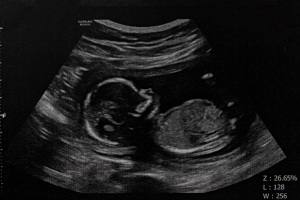Church of Jesus Christ of Latter-day Saints, management firm fined $5M for hiding $32 billion

The Church of Jesus Christ of Latter-day Saints and its affiliated investment manager, Ensign Peak Advisors, Inc., have been fined a collective $5 million by the U.S. Securities and Exchange Commission for using shell companies to hide the size of their investment portfolio, which grew to about $32 billion in 2018.
"We allege that the LDS Church's investment manager, with the Church's knowledge, went to great lengths to avoid disclosing the Church's investments, depriving the Commission and the investing public of accurate market information," Gurbir S. Grewal, director of the SEC's Division of Enforcement, said in a statement Tuesday. "The requirement to file timely and accurate information on Forms 13F applies to all institutional investment managers, including non-profit and charitable organizations."
Ensign Peak Advisers Inc., a non-profit entity operated by The Church of Jesus Christ of Latter-day Saints to manage investments, failed to file forms that would have disclosed the church's equity investments, the SEC stated.
The federal agency found that from 1997 through 2019, Ensign Peak failed to file Forms 13F, which investment managers are required to submit to show the value of certain securities they manage.
"The Church was concerned that disclosure of its portfolio, which by 2018 grew to approximately $32 billion, would lead to negative consequences," the regulatory body reports.
Ensign Peak created 13 shell companies around the U.S. to obscure the church's wealth and then filed Forms 13F in the names of those companies while maintaining control over the companies.
"The order finds that Ensign Peak maintained investment discretion over all relevant securities, that it controlled the shell companies, and that it directed nominee' business managers,' most of whom were employed by the Church, to sign the Commission filings," the SEC release said. "The shell LLCs' Forms 13F misstated, among other things, that the LLCs had sole investment and voting discretion over the securities. In reality, the SEC's order finds, Ensign Peak retained control over all investment and voting decisions."
The Church of Jesus Christ of Latter-day Saints, charged for causing the violations, agreed to pay a $1 million penalty, while Ensign Peak agreed to pay $4 million.
Responding to the SEC announcement Tuesday, church officials said they relied on advice from their lawyers to fulfill the reporting requirements and expressed regret for "mistakes made." They further noted that Forms 13F are now being properly filed for their investments.
"Since 2000, Ensign Peak received and relied upon legal counsel regarding how to comply with its reporting obligations while attempting to maintain the privacy of the portfolio. As a result, Ensign Peak established separate companies (LLCs) that each filed Forms 13F instead of a single aggregated filing," The Church of Jesus Christ of Latter-day Saints said in a statement.
"Ensign Peak and the Church believe that all securities required to be reported were included in the filings by the separate companies. In June 2019, the SEC first expressed concern about Ensign Peak's reporting approach. Ensign Peak adjusted its approach and began filing a single aggregated report. Since that time, 13 quarterly reports have been filed in full accordance with SEC requirements," the church added.
"This settlement relates to how the forms were filed previously. Ensign Peak and the Church have cooperated with the government over a period of time as we sought resolution. We affirm our commitment to comply with the law, regret mistakes made, and now consider this matter closed."
The fines for the violations are expected to be paid out of profits made on the church's investments.
In 2019, a report on a whistleblower complaint to the Internal Revenue Service alleged that the Church of Jesus Christ of Latter-day Saints stockpiled some $100 billion of tithes and donations meant for charity.
Officials at the organization pushed back, saying the "vast majority" of the funds are spent immediately for church business and related humanitarian work.
Church officials acknowledged that they have managed to save and invest the organization's finances well to build a "prudent reserve for the future."
"Over many years, a portion is methodically safeguarded through wise financial management and the building of a prudent reserve for the future. This is a sound doctrinal and financial principle taught by the Savior in the Parable of the Talents and lived by the Church and its members. All Church funds exist for no other reason than to support the Church's divinely appointed mission," the church said. "Claims being currently circulated are based on a narrow perspective and limited information. The Church complies with all applicable law governing our donations, investments, taxes, and reserves. We continue to welcome the opportunity to work with officials to address questions they may have."





























